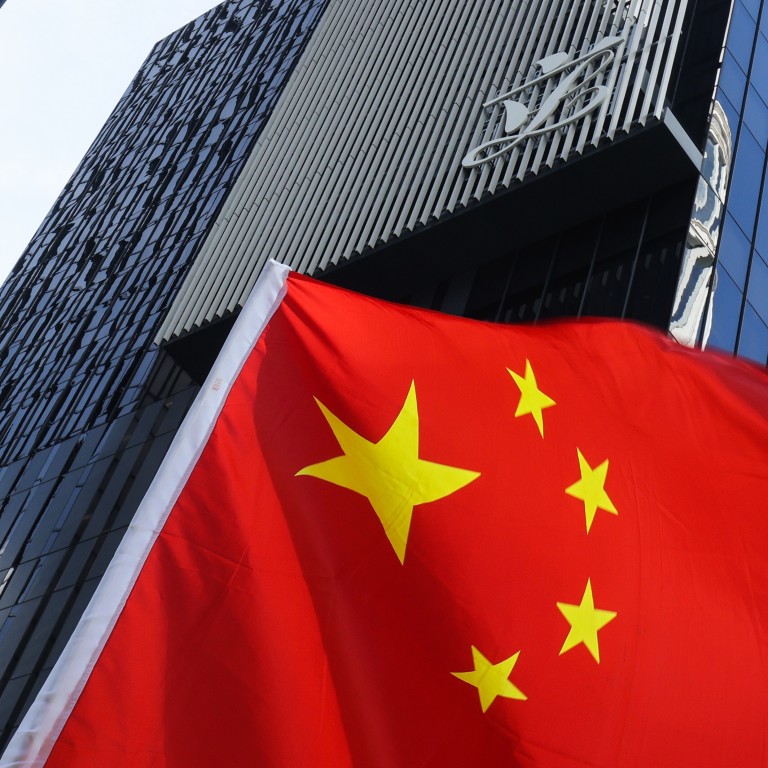
No new voters? No problem: Beijing ‘unlikely to blame’ Hong Kong’s pro-establishment camp for lack of interest in coming poll
- Politicians acknowledge the flatlining number of registered voters hints at disillusionment with the city’s elections
- But Beijing is more concerned with the turnout and results of the coming Legislative Council poll, one analyst says
Hong Kong’s flatlining number of registered voters is evidence of growing disillusionment with the city’s politics, but Beijing is unlikely to blame the pro-establishment camp for the trend, observers have said.
“After the improvements to the electoral system, Beijing made a realistic assessment of the new circumstances, and knows that a substantial portion of Hong Kong people cannot accept the changes made,” said Lau, vice-president of the semi-official think tank, the Chinese Association of Hong Kong and Macau Studies.
“So Beijing will not blame the pro-establishment camp. The central government did not highlight the need to boost participation. It’s more concerned about whether elections can help safeguard national security, improve governance and put Hong Kong’s democratic development on a new starting point.”

The changes were endorsed by China’s top legislative body in March, and were approved by Legco on May 27, a few weeks after the local government ended an annual voter registration campaign.
According to provisional figures released on September 26, only about 83,000 people signed up to vote this year, the lowest figure since 2018.
After deducting the 38,900 voters who died in the past 12 months, and the 42,200 whose registrations were problematic and required further examination, the net increase in electors this year was just 419, the smallest increment since 2012, when the number of voters dropped by 94,334.
Hong Kong elections: number of new registered voters falls to 419
A total of 1,450 voters have asked for their registration to be cancelled, the most since 2012 when nearly 1,900 made similar requests.
In 2012, the number of voters decreased by 2.7 per cent year on year after the Registrations and Electoral Office issued an unprecedented 255,000 letters to voters with suspicious or problematic records.
The number of registered voters in Hong Kong currently stands at about 4.47 million.
This year saw a 6.5 per cent drop in voters aged 18 to 30, as well as slight decreases in the 36 to 45 and 51 to 60 age brackets.
But pro-establishment lawmaker Horace Cheung Kwok-kwan, who is vice-chairman of the Democratic Alliance for the Betterment and Progress of Hong Kong and a member of the city leader’s de facto cabinet, brushed off the stagnating voter figures, and dismissed suggestions that a recent wave of emigration had played a part.
‘Have you woken up yet?’: top Hong Kong officials urged to meet public more often
“People who left Hong Kong were unlikely to take the time to deregister themselves as voters. I think the changes in the voter figures were only caused by an ageing population, which includes a low fertility rate and a decreasing youth population,” he said.
“It’s not just with voters; many schools also said they did not enrol enough new pupils.”
Cheung also noted that in the past, the opposition camp would urge supporters to register to vote ahead of major elections. “But there was no such call this year,” he added.
Ahead of the 2019 district council poll, the number of voters increased by 320,000, or 8.4 per cent, to 4.1 million.
Last year, the number of voters rose by another 8.1 per cent, to 4.4 million, just before the Legco poll was postponed.

One source also told the Post that officials overseeing voter registration believed the figures this year were so lacklustre because most of those who were interested in signing up would have done so the past two years.
“So apart from our elderly supporters, many of whom said they weren’t registered before, it’s very hard for us to enlist people,” she said.
Mak said the turnout among elderly voters explained why the number of electors aged 61 and up saw a modest increase of 4.5 per cent.
Lawmaker and New People’s Party chairwoman Regina Ip Lau Suk-yee, meanwhile, said the negligible increase in the overall number of voters showed that residents no longer felt they could have an effect on the coming election.
Hong Kong on ‘right track’ after electoral overhaul, Carrie Lam says on National Day
“A side effect of the political revamp was to depoliticise Hong Kong. For a long time, the city has been too political and too politicised,” Ip said. “In a way, these reforms ushered in a cooling-down period as we forge a way forward … and focus more on livelihood issues.”
Liberal Party member Jeremy Young Chit-on said the number of registered voters should not be the focus of discussion.
“As the city’s demographic changes, we should not just aim for having more and more young people voting. We should aim for a high turnout in the elections,” he said.
Lau, the pro-Beijing analyst, said he believed many residents were waiting to see whether the December Legco election produced a new generation of competent politicians.
“If a large number of capable lawmakers can be elected and achieve results on the socio-economic front, I think the voter registration figures will go up again,” he said.

